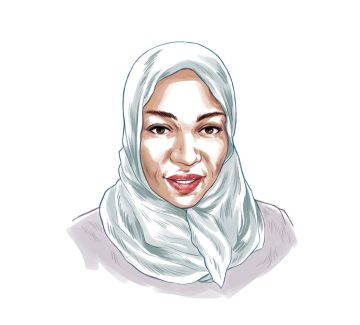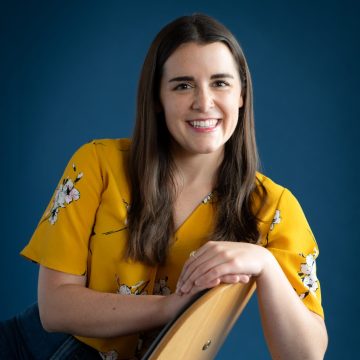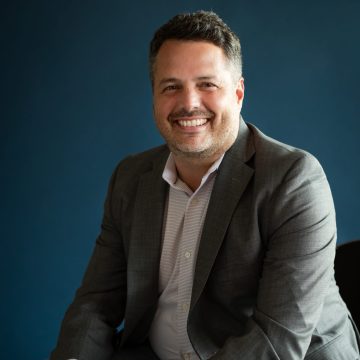Story
Zahra Aljabri
Fellowship: Five Years Out

“I am a part of this community even though I may have a different background.”
Zahra Aljabri’s (BF’12) conviction is clear in everything she does: Alleviate social justice issues within her Muslim American community.
Though her professional career began in the media and entertainment industry, Aljabri’s passion for reconciliation led her to the Council on American-Islamic Relations (CAIR) in Minnesota in 2010. She was the organization’s first full-time employee.
She was also busy working on Muslim Buddy, a nonprofit she launched with her husband. The organization provides services and training to Muslim groups that need support connecting with their community members.
Through these experiences, Aljabri observed community challenges and challenges across nonprofit governance structures. A nonprofit’s hierarchical model didn’t lend itself to Muslim American constituents’ needs — sometimes it made matters worse. Aljabri asked herself how an organization could become more open to her community.
Receiving the Bush Fellowship at such a critical time in her career gave Aljabri an opportunity to study alternative governance structures and implement a better model through Muslim Buddy. “We were finding dynamic ways to do more than just a survey,” Aljabri explains. “We had community conversations to get more people involved.”
Aljabri saw how changing an organization’s structure could help it have greater social impact. She also shared her learning at CAIR-MN, which was working with many different subgroups within the Muslim community.
Though bound by certain commonalities, each subgroup has its own individual circumstances and needs. Aljabri and her team at CAIR successfully served each of those subgroups. Today CAIR-MN has grown considerably, reaching even more people throughout the state with outposts in Rochester and St. Cloud.
Aljabri’s most recent endeavor, Mode-sty, is an online store for women seeking modest fashion styles. She was inspired by young Somali American girls who wanted to respect their culture while simultaneously expressing themselves through fashion.
“(Fashion) can be a visual showcase to state that, ‘I am a part of this community even though I may have a different background, religious system or culture that I am bringing to the community,’ ” Aljabri says.
While her initial goal with Mode-sty was to provide more fashion options to Muslim women in the United States, women of many different faith backgrounds have flocked to the website. In a way, the company has turned into an interfaith endeavor, bringing women with different beliefs together around a common interest.
“Start at a more basic, more common element so you can really have a chance to appreciate that our theological differences can be enumerated,” she says. “Everything else — the common human experience — is so much greater.”
Mode-sty serves as an example of Aljabri’s strong conviction that people have much more in common than they may initially think — an idea that is perhaps more relevant in the world today than it has ever been.
Illustration by Allegra Lockstadt
Continue reading
-

News
Opportunity to work with us
As part of our office move later this year, we are exploring possibilities for the build out of the ground floor of the building. We are in the early stages of this and considering different types of operating models and potential partnerships.
-

Staff note
Coordinating the work of our contact hub
We aim to be radically open in all that we do, and that includes being more accessible to more people and sharing what we learn along the way.
-

Staff note
Making every dollar work through impact investing
We have benefitted from the experience of other funders as we developed our impact investing approach. Now we are paying it forward and sharing what we have done and what we have learned.